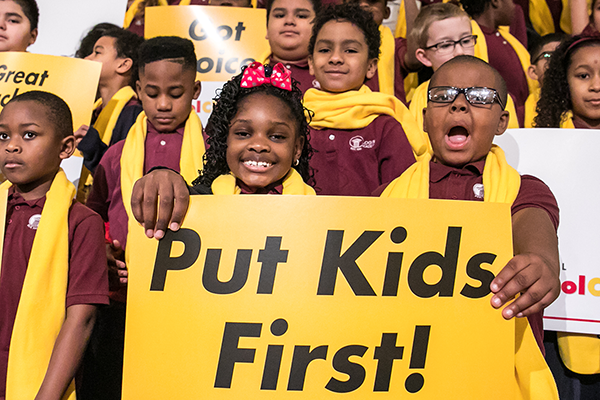Media

West Virginia Leaves Students Without Options
Last month, hundreds of students gathered at Lincoln Park Performing Arts Charter School outside of Pittsburgh to celebrate National School Choice Week. With music, dance acts, and peppy speakers, participants made it clear that school choice was making a positive difference in their lives.
This celebration stood in stark contrast to the dire situation of families a stone’s throw away in West Virginia. The mountain state is one of only four states with no school choice options. No tax credit scholarships, no charter schools, no education scholarship accounts (ESAs). Only parents with the financial means can afford an alternative to their district-assigned school.
At the Lincoln Park celebration, PA Cyber School senior Sarah Hulse shared what school choice meant for her.
We cannot undervalue the importance of students feeling empowered to make these informed decisions and make those choices about their education. … PA Cyber taught me how to think outside the box, manage my time, and find my own path and my own educational choice. I’ve learned to seek opportunities. I know those are skills that will help me in college, my career, and beyond.
For her peers in nearby West Virginia, these options don’t exist unless their parents can afford it on their own. Sarah accelerated her schooling and is graduating this spring a full year earlier than if she had stayed in her district school. If she happened to live a few miles to the west, this would not have been possible.
Parent Teresa Allhouse shared her family’s educational journey: “What does school choice mean to my family? It means opportunity, emotional healing, confidence, and a change that allows my children to reach their full potential in any setting. Public schools are designed for one size fits all education.” Teresa’s oldest child is gifted and now receives an accelerated education. Her middle child was bullied; cyber school has allowed him to feel safe. Her third child has an IEP and needed a lower-pressure environment.
Through school choice, all of Teresa’s children have found the education that suits them. If the Allhouse family lived in West Virginia, her children would have to remain in district schools that did not meet their needs.
Hope surfaced recently in West Virginia when the Senate approved an education reform bill that would have brought ESAs and charter schools to the state. The most recent version of the bill would allow 1,000 students with special needs to access ESAs. It would also authorize up to seven charter schools—with no more than two approved per year.
Despite the five percent salary raise included in the reform bill, West Virginia teachers went on strike this morning to protest bringing even this limited amount choice to their students. Only 32 percent of the state’s fourth graders are proficient or better at reading, and just 24 percent of eighth graders are proficient or better at math. But teachers are striking to keep West Virginia families from having any other options.
There are certainly shortcomings in Pennsylvania’s school choice offerings. State and local government policies severely limit the availability of tax credit scholarships and charter schools. Education savings accounts have yet to be adopted. But the situation is clearly better than what our neighbors in West Virginia face.
Education is not one size fits all. Lawmakers in West Virginia, Pennsylvania, and across the country need to recognize that. Empowering parents through school choice will ensure all children receive the education that is best for them.